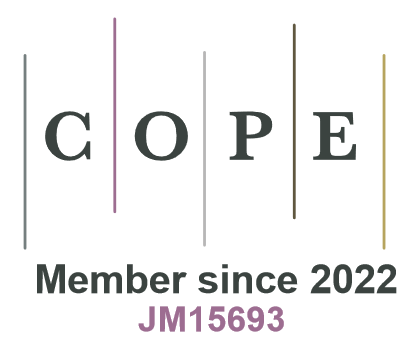Relation between medical sociology and sociology of ageing or later life. A new challenges, social expectations and dilemmas
DOI:
https://doi.org/10.1515/anre-2015-0018Keywords:
medical sociology, sociology of aging – later lifeAbstract
Medical sociology has not paid special attention to observed demographic changes associated with the “greying of societies”. Lack of interest in ageing has resulted in the necessity to develop a new subdiscipline – sociology of aging. The evolution of this subdiscipline has been described in relation to social gerontology. Theories of aging (healthy, successful) have been presented in relation to new changes. Dilemmas and intractable problems focus on prejudices concerning the older persons, gender-related differences in the quality of life in older age, elderly abuse, and quality of life in mentally ill old people as well as other issues.
Downloads
References
Achat H, Kawachi I, Levine S, Berkey C, Coakley E, Colditz G. 1998. Social networks, stress and health-related quality of life. Qual Life Res 7:735–50.
View in Google Scholar
Ajrouch KJ, Blandon AY, Antonucci TC. 2005. Social networks among men and women: the effects of age and socioeconomic status. J Gerontol B Psychol Sci Soc Sci 60:S311–17.
View in Google Scholar
Antonucci TC, Akiyama H. 1987. Social networks in adult life and a preliminary examination of the convoy model. Gerontology 42:519–527.
View in Google Scholar
Antonucci TC. 1985. Personal characteristics, social support and social behavior. In: RH Binstock, E Shanas, editors. Handbook of aging and the social sciences. 2nd edition. New York: Van Nostrand Reinhold. 94–128.
View in Google Scholar
Arber S, Cooper H. 1999. Gender differences in health in later life: the new paradox? Soc Sci Med 48:61–76.
View in Google Scholar
Arber S, Davidson K, Ginn J editors. 2003. Gender and Ageing: Changing Roles and Relationships. Buckingham: Open University Press.
View in Google Scholar
Baker AA. 1975. “Granny battering”. Modern Geriatrics 5:20–24.
View in Google Scholar
Bengtson VL, Roberts REL. 1991. Intergenerational Solidarity in Aging Families: An Example of Formal Theory Construction. Journal of Marriage and the Family 53(4):856–70.
View in Google Scholar
Berkman L, Glass T. 2000. Social Integration, Social Networks, Social Support and Health. In: LF Berkman and I Kawachi. Social Epidemiology, editors. New York: Oxford University Press. 137–173.
View in Google Scholar
Biggs S, Goergen T. 2010. Theoretical development in elder abuse and neglect. Ageing Int 35:167–70.
View in Google Scholar
Connidis IA, McMullin JA. 2002. Sociological ambivalence and family ties: A critical perspective. Journal of Marriage and Family 64:558–67.
View in Google Scholar
Crowther MR, Parker MW, Achenbaum WA, Larimore WL, Koenig HG. 2002. Rowe and Kahn’s Model of Successful Aging Revisited: Positive Spirituality – The Forgotten Factor. The Gerontological 42(5):613–620.
View in Google Scholar
Germov J editor. 2005. Second opinion, an introduction to health sociology, 3rd edition, Oxford: Oxford University Press.
View in Google Scholar
Hansen-Kyle L. 2005. A concept analysis of healthy aging. Nursing Forum 40(2):45–57.
View in Google Scholar
Higgs P, Jones IR. 2009. Medical sociology and old age. Towards a sociology of health in later life. London and New York: Routledge.
View in Google Scholar
Hung L-W, Kempen GIJM, de Vries NK. 2010. Cross-cultural comparison between academic and lay views of healthy ageing: a literature review. Ageing and Society 30(8):1373–91.
View in Google Scholar
Jefferys M. 1996. Cultural aspects of ageing: Gender and inter-generational issues. Soc Sci Med 43(5):681–687.
View in Google Scholar
Kahn RL, Antonucci TC. 1980. Convoys over the life course: Attachment, roles, and social support. In: PB Baltes, OC Brim, editors. Life-span, development, and behaviour. New York: Academic Press. 254–283.
View in Google Scholar
Marshall VW, Bengtson VL. 2011. Theoretical Perspectives on the Sociology of Aging. In: RA Settersten, Jr., JL Angel, editors. Handbook of Sociology of Aging. New York: Springer. 17–33.
View in Google Scholar
Moren-Cross J, Lin N. 2000. Social networks and health. In: R Binstock and L George, editors. Handbook of aging and the social sciences. New York: Academic Press.
View in Google Scholar
National Institute of Aging, National Institute of Health, World Health Organisation. 2011. Joint report “Global Health and Aging”. NIH publication number 11–7737.
View in Google Scholar
Penhale B. 2010. Responding and Intervening in Elder Abuse and Neglect. Ageing Int 35 (3):235–52.
View in Google Scholar
Riley MW, Johnson M, Foner A. 1972. Aging and Society, Volume III: A Sociology of Age. New York: Russel Sage Foundation.
View in Google Scholar
Schulz R, Heckhausen J. 1999. Aging, Culture and Control: Setting a New Research Agenda. J Gerontol B Psychol Sci Soc Sci 54B(3):P139–45.
View in Google Scholar
Settersten RA, Angel JL. 2011. Trends in the Sociology of Aging: Thirty Year Observations. In: RA Settersten, Jr., JL Angel, editors. Handbook of Sociology of Aging. New York: Springer. 3–13.
View in Google Scholar
Siegrist J, Marmot M. 2004. Health inequalities and the psychosocial environment—two scientific challenges. Soc Sci Med 58:1463–73.
View in Google Scholar
Silverstein M, Bengtson VL. 1997. Intergenerational Solidarity and the Structure of Adult Child–Parent Relationships in American Families. Am J Sociology 103(2):429–60.
View in Google Scholar
Tobiasz-Adamczyk B editor. 2009. Przemoc wobec osób starszych. Kraków: Wydawnictwo Uniwersytetu Jagiellońskiego (in Polish).
View in Google Scholar
Tobiasz-Adamczyk B, Brzyski P, Bajka J. 2003. Społeczne uwarunkowania jakości życia kobiet u progu wieku starszego. Badania porównawcze. Kraków: Wydawnictwo Uniwersytetu Jagiellońskiego (in Polish).
View in Google Scholar
Tobiasz-Adamczyk B. 2012. Deficyt zasobów psychospołecznych w wieku starszym a subiektywna ocena stanu zdrowia i jakości życia z perspektywy socjologii starzenia. In: M Gałuszka, M Wieczorkowska, editors. Społeczne, kulturowe i polityczne uwarunkowania ryzyka zdrowotnego. Łódź: Uniwersytet Medyczny w Łodzi. 238–278 (in Polish).
View in Google Scholar
Victor C, Scambler S, Bond J, Bowling A. 2000. Being alone in later life: loneliness, social isolation an living alone. Rev Clin Gerontol 10:407–17.
View in Google Scholar
Young Y, Frick K, Phelan E. 2009. Can successful aging and chronic illness coexist in the same individual? A multidimensional concept of successful aging. J Am Med Dir Assoc 10(2):87–92.
View in Google Scholar
Downloads
Published
How to Cite
Issue
Section
License

This work is licensed under a Creative Commons Attribution-NonCommercial-NoDerivatives 4.0 International License.








